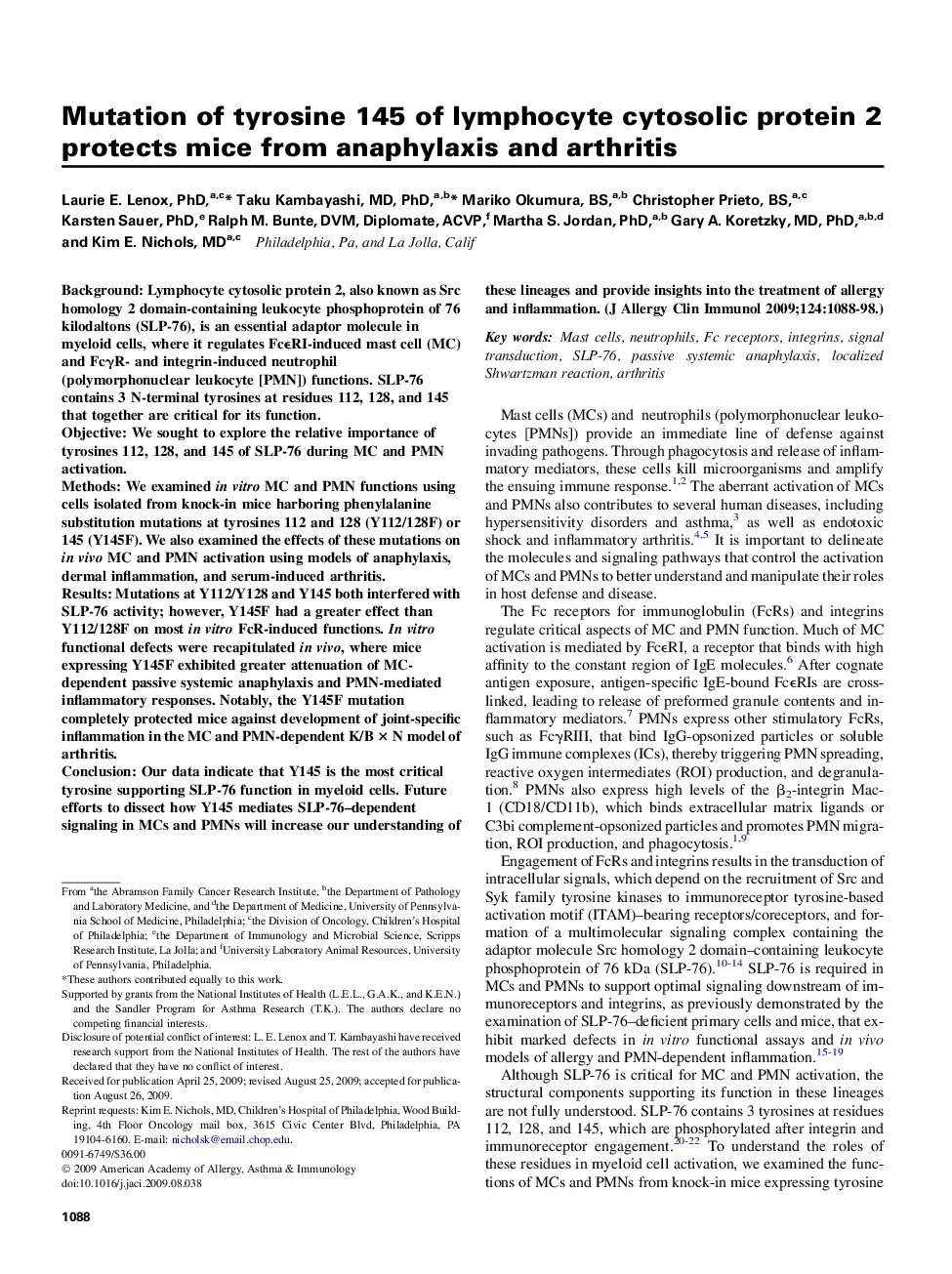| Article ID | Journal | Published Year | Pages | File Type |
|---|---|---|---|---|
| 3200481 | Journal of Allergy and Clinical Immunology | 2009 | 11 Pages |
BackgroundLymphocyte cytosolic protein 2, also known as Src homology 2 domain-containing leukocyte phosphoprotein of 76 kilodaltons (SLP-76), is an essential adaptor molecule in myeloid cells, where it regulates FcεRI-induced mast cell (MC) and FcγR- and integrin-induced neutrophil (polymorphonuclear leukocyte [PMN]) functions. SLP-76 contains 3 N-terminal tyrosines at residues 112, 128, and 145 that together are critical for its function.ObjectiveWe sought to explore the relative importance of tyrosines 112, 128, and 145 of SLP-76 during MC and PMN activation.MethodsWe examined in vitro MC and PMN functions using cells isolated from knock-in mice harboring phenylalanine substitution mutations at tyrosines 112 and 128 (Y112/128F) or 145 (Y145F). We also examined the effects of these mutations on in vivo MC and PMN activation using models of anaphylaxis, dermal inflammation, and serum-induced arthritis.ResultsMutations at Y112/Y128 and Y145 both interfered with SLP-76 activity; however, Y145F had a greater effect than Y112/128F on most in vitro FcR-induced functions. In vitro functional defects were recapitulated in vivo, where mice expressing Y145F exhibited greater attenuation of MC-dependent passive systemic anaphylaxis and PMN-mediated inflammatory responses. Notably, the Y145F mutation completely protected mice against development of joint-specific inflammation in the MC and PMN-dependent K/B × N model of arthritis.ConclusionOur data indicate that Y145 is the most critical tyrosine supporting SLP-76 function in myeloid cells. Future efforts to dissect how Y145 mediates SLP-76–dependent signaling in MCs and PMNs will increase our understanding of these lineages and provide insights into the treatment of allergy and inflammation.
